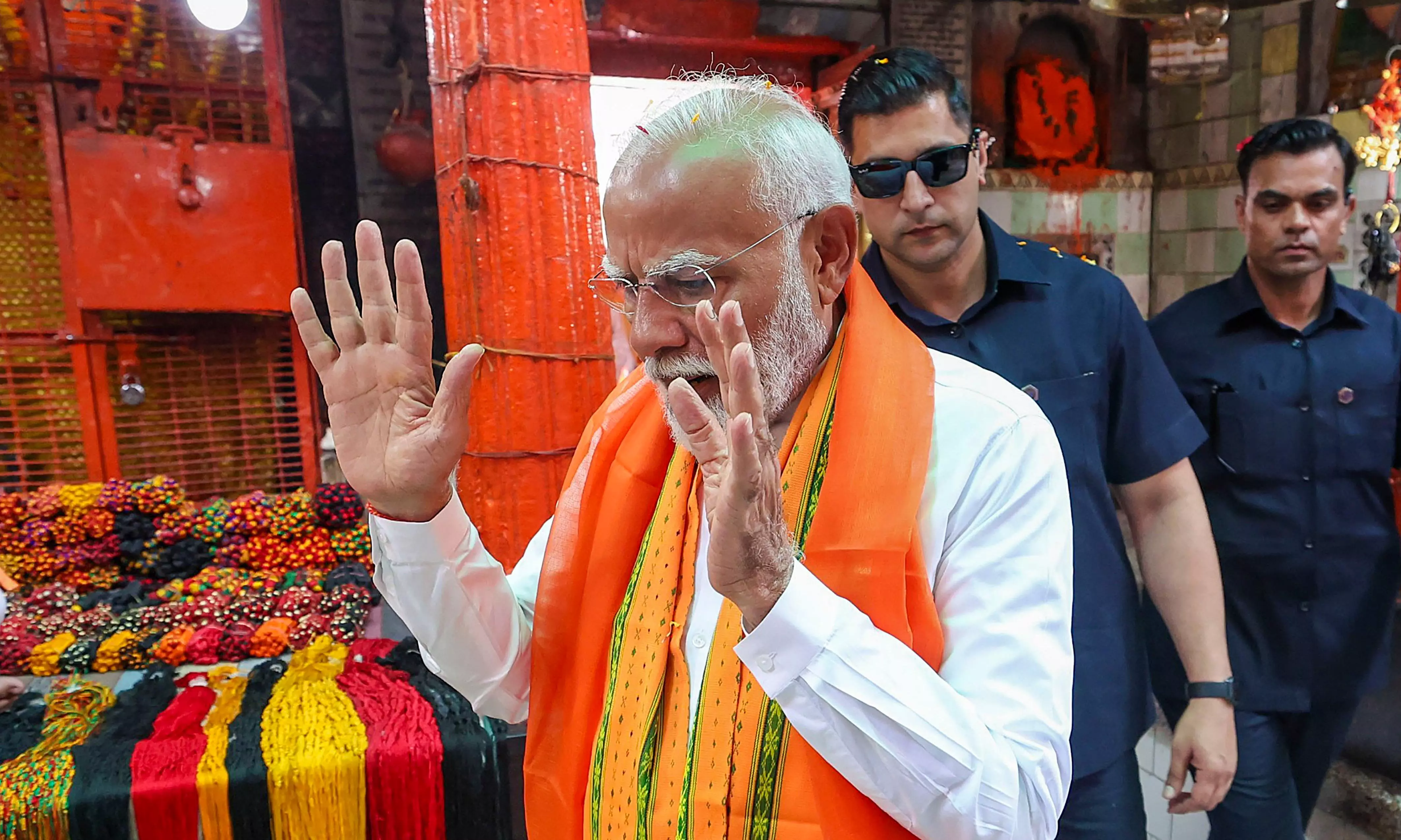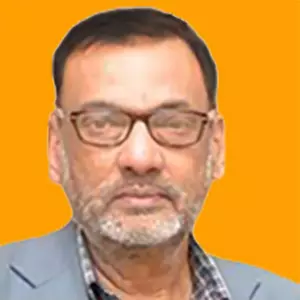
- Home
- India
- World
- Premium
- THE FEDERAL SPECIAL
- Analysis
- States
- Perspective
- Videos
- Sports
- Education
- Entertainment
- Elections
- Features
- Health
- Business
- Series
- In memoriam: Sheikh Mujibur Rahman
- Bishnoi's Men
- NEET TANGLE
- Economy Series
- Earth Day
- Kashmir’s Frozen Turbulence
- India@75
- The legend of Ramjanmabhoomi
- Liberalisation@30
- How to tame a dragon
- Celebrating biodiversity
- Farm Matters
- 50 days of solitude
- Bringing Migrants Home
- Budget 2020
- Jharkhand Votes
- The Federal Investigates
- The Federal Impact
- Vanishing Sand
- Gandhi @ 150
- Andhra Today
- Field report
- Operation Gulmarg
- Pandemic @1 Mn in India
- The Federal Year-End
- The Zero Year
- Science
- Brand studio
- Newsletter
- Elections 2024
- Events
- Home
- IndiaIndia
- World
- Analysis
- StatesStates
- PerspectivePerspective
- VideosVideos
- Sports
- Education
- Entertainment
- ElectionsElections
- Features
- Health
- BusinessBusiness
- Premium
- Loading...
Premium - Events

Whenever BJP’s social engineering hits a hurdle in Hindi hinterland, it makes Muslims a rallying point for its attacks; the PM is doing the same now
As he spoke on the deck of a cruise boat afloat near the Ganga’s sacred ghats, to a rather fawning TV anchor, Prime Minister Narendra Modi sounded strangely guarded, as if he was testing waters.
Barring the North Indian summer heat, something else seemed to be bothering the usually flamboyant speaker, as he wiped the sweat off his face often, with a large, neatly-folded handkerchief, as the anchor grinned and nodded in polite agreement during the nearly 30-minute-long interview.
Feelingly, the PM spoke about things that covered, among other things, the futility of resorting to communal or divisive ways in politics based on Hindu-Muslim chasm. It could well make anyone unworthy of public life, he said, to promptly add that he had “never done so, nor would [he] ever do”.
Volte face
In that interview on May 14, given in Varanasi after filing his nomination papers, Modi also denied making direct or veiled references to any such effect in his election speeches, discounting counterpoints like his referring to Muslims as “intruders and population multipliers” while recently addressing large gatherings (at Banswara in Rajasthan or Aligarh in Uttar Pradesh besides numerous other places).
He said what he meant was generally those poor people who produce abnormally high number of children beyond their capacity to raise, and argued that he did not refer to their faith.
Needless to say, Modi’s words, spoken in the ancient city that has become his pet constituency, went against his much-recorded and widely-televised speeches made in huge rallies addressed by him.
2017 speech
It has often been his main pitch or theme that he has touted not just during polls but also on other occasions, such as the farewell speech he delivered in Parliament when former Vice-President and Rajya Sabha Chairman Hamid Ansari was retiring in 2017.
The idea was to make the dignitary feel slighted on the day of his retirement, as Ansari himself pointed out later. In a recent book, the former Vice-President also details a few run-ins the two had had while working together in their high offices.
But that is beside the point here, except to indicate that the wont of the powers-that-be today is to berate possibly every Muslim, whether he holds as high an office as that of the Vice-President or he happens to be a lowly commoner.
Why the change of tone?
So, the question is, why did Modi look so keen to retract from what he has been saying, not once or twice but in election after election and through speech after speech?
Whatever the reason may be, for Muslims, it could have been a pleasant surprise. However, on the very next day of the interview, Modi was again suggestively back to his usual poll rhetoric.
In rallies held in Maharashtra, he unabashedly painted Muslims as usurpers of others’ or the majority community’s rights, claims, and share, and the Congress as a likely facilitator in this.
A poll fraught with myriad uncertainties
Behind the stark contradiction in assertions made over a span of two days appears to be Modi’s fear of not being able to muster enough MPs for the BJP-led National Democratic Alliance (NDA), so as to continue in the top office.
As it is, the current polls are caught up in myriad uncertainties. Voter turnout has generally been low, indicating anti-incumbency after the 10-year Modi and BJP rule.
Moreover, the youth have been despondent due to the rising cost of education and other things, lack of job opportunities, and frequent paper leaks in competitive exams held for recruitment in various state services. Similarly, farmers are restive throughout most of the country.
The caste factor is at play, weakening the Hindutva thrust, and the less-privileged fear harm to their constitutional rights in case the growth-obsessed and progress-savvy BJP returns to power once again. Its list of big and long-term projects, fear many, can well override their small concerns and dreams to build a decently secure future for their children.
United Opposition
This is also the time when Opposition parties have regrouped to forge the INDIA coalition to take on the NDA with greater might. This is how a secular alternative, shorn of exclusivist segregation of minorities, is taking shape, much to the consternation of the BJP.
Social democrats have sensed the risk their splintering may entail — their possible disintegration and a chance for the right-wing revivalists to continue their rule in Delhi as well as in several states. The political battle-lines this time have been drawn between ideologies rather than personalities.
It is in this backdrop that Modi tried to jettison the communal card — no matter how briefly and with whatever motive in mind. It came at a time when votes had been cast for more than half of the 543 Lok Sabha constituencies across the country and for half of the seats in UP.
Behind the scenes
UP is virtually a BJP bastion, and Varanasi itself has sent Modi to Parliament twice before. But not many know that on a day when the Prime Minister was taking an unusual stand in an interview given to a friendly TV channel, one of his ministers, Sanjeev Balyan, was meeting a strongman in UP politics, Raghuraj Pratap Singh, better known as Raja Bhaiya, in Pratapgarh.
Balyan’s mission was to enlist Raja Bhaiya’s support for BJP candidates in Kaushambi and its neighbouring constituencies. The BJP’s Kaushambi bet, Vinod Sonkar, accompanied Balyan to see Raja Bhaiya.
But Raja, who is the last scion of the erstwhile Kunda estate in Pratapgarh district, did not commit his support to either Sonkar or the other BJP candidates in the region — despite the fact that he recently met Union Home Minister Amit Shah in Bengaluru.
Even in the Rajya Sabha polls held a few months ago, Raja, along with two other UP Assembly members of his Jansatta Loktantrik Dal party, had voted for the BJP.
Thakurs’ anger
Raja Bhaiya is a prominent face of UP’s erstwhile Thakur aristocracy. Thakurs have been miffed with the BJP of late because of the party’s reluctance to offer them enough tickets for the Lok Sabha polls.
Besides, a Union minister’s remarks against former Rajput rulers have hurt them. Also, former Army chief General VK Singh and Suresh Rana have not been given tickets this time.
Thus, the BJP has been trying hard to win back Thakurs’ support via Raja Bhaiya and a few others. Raja first veered towards supporting the BJP, but soon turned cold. This, in a way, has sparked fears of a dent in the BJP’s upper caste support base.
Old tactic fails?
But whenever the BJP’s social engineering comes to face any hiccup or hurdle in the Hindi hinterland, the party turns to Muslims and makes them a rallying point for its attack. This appears to be the case once again in these polls.
Yet, for a change, Muslims have been largely unmoved by the BJP’s manoeuvres this time. They have refrained from getting provoked to fuel the hate mills that got roaring with the onset of the polls.
Once seen in this light, Modi’s interview on the day of his candidature from Varanasi looks to be a last-ditch effort to counter Muslims' withdrawal and seek some response from them to his and his cohorts’ relentless barbs shot against not only the Opposition, but Muslims too.
(The Federal seeks to present views and opinions from all sides of the spectrum. The information, ideas or opinions in the article are of the author and do not necessarily reflect the views of The Federal.)


